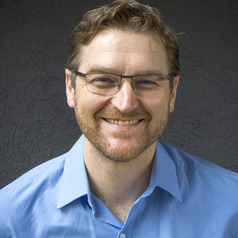
Michael Johan von Maltitz
Associate Professor, Mathematical Statistics and Actuarial Science, University of the Free State
Area(s) of Interest
Statistics Education, Sequential Regression Multiple Imputation, Incomplete Data, Multivariate Statistics, Causal Inference
Less ![]()
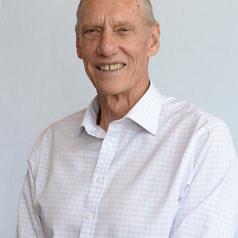
Michael John O'Keeffe
Adjunct Research Fellow in Sports Coaching, The University of Queensland
Graduated with HD average
I am currently an Adjunct Research Fellow in sports coaching at the University of Queensland with a focus on teamwork in both sports and business. This builds on my previous experience at the interface between academia and industry as an Adjunct Professor in Value Chain Management at UQ, and a Visiting Senior Research Fellow at the Wye College in the UK.
Less ![]()
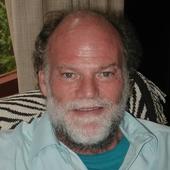

Michael John Wood
Mitacs Elevate Post-Doctoral Scholar, McGill University
I take inspiration from nature when designing surfaces to solve engineering problems. This includes anti-wetting, anti-icing, and anti-fouling surfaces.
Less ![]()

Michael Joseph Dominic Roberts
Associate Dean & Associate Professor, Faculty of Business and Communications Studies, Mount Royal University
Michael Roberts is Associate Dean and an Associate Professor at the Bissett School of Business at Mount Royal University in Calgary, Canada. He completed his PhD in International Business and Strategic Management in the Richard Ivey School of Business at the University of Western Ontario. He has been teaching since 1995, and had taught at business schools in Canada and South Korea including the KAIST Graduate School of Management. Michael joined Bissett in 2019 after completing his term of International Business, Strategy, and Law at MacEwan University. Most of Michael’s work is focused on the transfer of practices across international boundaries, with a particular focus on South Korea. He has published scholarly papers, policy focused reports, and written cases that focus on Asia region and South Korea in particular. Michael has published work for peer-reviewed journals, including the Journal of Management Studies (JMS), International Journal of Human Resource Management, and International Business Review (IBR).
Less ![]()

Michael K. Logan
Assistant Professor of Criminal Justice, Kennesaw State University
Michael K. Logan is an Assistant Professor of Criminal Justice in the Department of Sociology and Criminal Justice at Kennesaw State University. He received his Ph.D. in Criminology from the University of Nebraska Omaha (2020). Michael's research focuses violent extremism, offender decision-making, and malevolent creativity and innovation. Michael's research has been funded by the National Institute of Justice (NIJ), the Department of Homeland Security (DHS), and the National Counterterrorism Innovation, Technology, and Education Center (NCITE), and his research appears in scholarly journals such as the Journal of Research on Crime and Delinquency; Terrorism and Political Violence; Perspectives on Terrorism; Psychology of Aesthetics, Creativity, and the Arts; and Journal of Creative Behavior. Additionally, Michael is an Editorial Board member for Dynamics of Asymmetric Conflict: Pathways toward Terrorism and Genocide.
Less ![]()
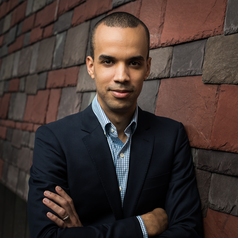
Michael P. Jeffries
Professor of American Studies, Wellesley College
Michael P. Jeffries is Dean of Academic Affairs, Class of 1949 Professor in Ethics, and Professor of American Studies at Wellesley College. He holds a PhD from Harvard University and works at the intersection of race, culture, and politics.
Dr. Jeffries is the author of four books. Black and Queer on Campus (NYU Press, 2023) provides an inside look at Black LGBTQ college students and their experiences. Behind the Laughs: Community and Inequality in Comedy (Stanford University Press, 2017) explores the world of professional comedy, where social and professional demands force artists to build strong communities in an industry divided along lines of race, class, and gender. Paint the White House Black: Barack Obama and the Meaning of Race in America (Stanford University Press, 2013) uses Obama's presidency to demonstrate how race relies on other social forces, like gender and class, for its meaning and impact. Thug Life: Race, Gender, and the Meaning of Hip-Hop (University of Chicago Press, 2011) puts the spotlight on hip-hop fans and describes how everyday listeners define hip-hop and use it in their lives.
Dr. Jeffries has published dozens of essays and works of criticism in The New York Times, The Atlantic, The Guardian, and The Boston Globe, and has been interviewed by The Washington Post, The New York Times, NPR, and other outlets. He is a regular contributor on television and radio at Boston's public broadcasting station, WGBH, and he tweets @M_P_Jeffries.
Less ![]()

Michael P. Moore
Assistant Professor of Biology, University of Colorado Denver
Dr. Michael P. Moore studies physiological and developmental limits on evolution. His research with dragonflies and amphibians details why organisms have been able to adapt to some environments but not others. This work also helps us predict the ways that organisms will and will not respond to our changing planet.
Less ![]()

Michael R. King
Associate Professor, Gustavson School of Business and Lansdowne Chair in Finance, University of Victoria
Professor King is the Lansdowne Chair in Finance at University of Victoria’s Gustavson School of Business where his research is on banking and fintech, financial markets, and climate finance. He previously worked at Western's Ivey Business School (2011-2019), in central banking in Ottawa and Basel (2001-2011) and investment banking in New York, London and Zurich (1992-1998). He holds the CFA designation and teaches undergraduates and executives.
Less ![]()

Michael Scott Bryant
Professor of History and Legal Studies, Bryant University
Michael S. Bryant is a Professor of History and Legal Studies specializing in the impact of the Holocaust on the law, human rights, German criminal law, and international humanitarian law. Professor Bryant has worked in the United States and abroad in Holocaust research and education. He received a B.A. from The Ohio State University, a J.D. from Emory University, and a Ph.D. in Modern European History from The Ohio State University, and has taught for The Ohio State University, the University of Toledo, Bryant University, Creighton University Law School, and the National Judicial College in the areas of history, criminal justice, law, and human rights. He also served as an Assistant Staff Judge Advocate in the U.S. Air Force (1990-94). Professor Bryant is the author of Confronting the "Good Death": Nazi Euthanasia on Trial, 1945-53 (University Press of Colorado, 2005) and numerous articles on the postwar adjudication of Nazi-era crimes. He has served as a member of the Peer Review Committee for the Fulbright Senior Specialist Program and is currently a member of the Board of Editors for Human Rights Review. Additionally, he has held fellowships from the Fulbright Foundation, the National Endowment for the Humanities, the National Science Foundation, the German Exchange Service (DAAD), the U. S. Holocaust Memorial Museum, the Woodrow Wilson Foundation, and the Alexander von Humboldt Foundation. Professor Bryant’s study of the major West German "Operation Reinhard" death camp investigations and trials of the 1960’s was published in 2014 by the University of Tennessee Press, winning the Book of the Year Award from the American National Chapter, Association Internationale de Droit Penal. His third book, A World History of War Crimes, was published in the fall of 2015 by Bloomsbury Academic Press in London (the second, significantly expanded edition was published in 2021). In 2020 he published Nazi Crimes and their Punishment (Hackett) and in 2021 his co-authored casebook Comparative Law: Global Legal Traditions (Carolina Academic Press) appeared in print.
Less ![]()
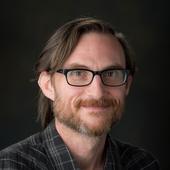

Michael Timothy Bennett
PhD Student, School of Computing, Australian National University
After obtaining a masters from London Business School, I worked for 7 years in the technology sector in the UK, Italy, US and India. After founding a successful machine learning consultancy in London, I returned home to Australia to undertake research focused on artificial intelligence, studying at the ANU.
Less ![]()
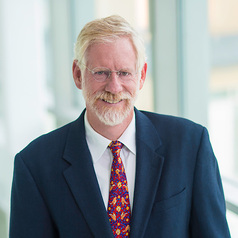
Michael W. Carroll
Professor of Law, American University
Michael W. Carroll is Professor of Law and Faculty Director of the Program on Information Justice and Intellectual Property (2009 – present). He teaches and writes about intellectual property law and cyberlaw. Professor Carroll's research focuses on the search for balance in intellectual property law over time in the face of challenges posed by new technologies. His research includes projects about the social costs imposed by one-size-fits-all intellectual property rights and about the history of copyright in music.
Professor Carroll also is recognized as a leading advocate for open access over the Internet to the research that appears in scholarly and scientific journals. He has written white papers and has given numerous presentations to university faculty, administrators, and staff around the country on this issue. In addition, he speaks about and promotes publication of open educational resources and open scientific data.
Professor Carroll is a founding member of Creative Commons, Inc. (2001 – 2015), a global organization that provides free, standardized copyright licenses to enable and to encourage legal sharing of creative and other copyrighted works. He remains involved with the Creative Commons USA project at WCL (2015 – present). He also served on the Board of the Public Library of Science (2012 – 2022) and served on the National Research Council’s Board on Research Data and Information (2008–2013).
Prior to joining the WCL faculty, Professor Carroll taught at the Villanova University School of Law (2001–09), and he served as a law clerk to Judge Judith W. Rogers, U.S. Court of Appeals for the D.C. Circuit, and Judge Joyce Hens Green, U.S. District Court for the District of Columbia. He practiced law at Wilmer, Cutler & Pickering (1996–97; 2000–01) (now WilmerHale) in Washington, D.C. Prior to entering law school, Professor Carroll was a journalist in Chicago, a high school teacher in Zimbabwe, and a project assistant at the Africa-America Institute, where he worked on providing election monitoring and election assistance in Africa. He is a graduate of the Georgetown University Law Center and the University of Chicago.
Less ![]()

Michael W. Crowder
Professor of Chemistry and Biochemistry, Miami University
Dr. Crowder is a Professor of Chemistry and Biochemistry and Dean of the Graduate School at Miami University. Dr. Crowder's research interests lie in bioinorganic chemistry, including metalloenzymes, antibiotic resistance, metal ion homeostasis and inhibitor design.
Less ![]()
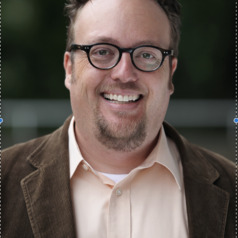
Michael W. Wagner
William T. Evjue Distinguished Chair for the Wisconsin Idea & Professor of Journalism and Mass Communication, University of Wisconsin-Madison
Michael W. Wagner (Ph.D., Indiana University, 2006) is Helen Firstbrook Franklin Professor of Journalism and Mass Communication at the University of Wisconsin-Madison where he directs the Center for Communication and Civic Renewal. Wagner’s research explores how individuals’ experiences in their local, state, and national information ecologies influence what they believe, what they want, and what they do.
His scholarship has been published in outlets such as Cambridge University Press, Science, Journal of Communication, International Journal of Press/Politics, Annual Review of Political Science and many others. Wagner edits the Forum section of the journal Political Communication, which brings together scholars, practitioners, and political elites to contribute to discussions about contemporary issues. He has published public-facing work in outlets including the Washington Post, the Brookings Institution’s TechStream, the Scholars Strategy Network, Vox, Mischiefs of Faction, and PBS’ MediaShift. He has given more than 350 public talks across the globe about misinformation, polarization, and democracy. Wagner is on the Scientific Board of Advisors for the General Social Survey, is Associate Editor of Public Opinion Quarterly and has won several awards for teaching, public service, and research.
Less ![]()
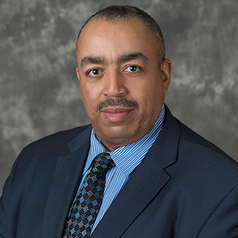
Michael Z. Green
Professor of Law and Director, Workplace Law Program, Texas A&M University
I am tenured full professor at Texas A&M University School of Law where I write and teach about legal matters that affect the workplace. I am an elected member of the College of Labor and Employment Lawyers and the American Law Institute. I also focus on alternative dispute resolution and matters of race in the workplace along with traditional subjects in labor law, employment law, and employment discrimination law. I am also a labor and employment arbitrator and I have been a law professor for more than 15 years and numerous publications on workplace matters.
Less ![]()
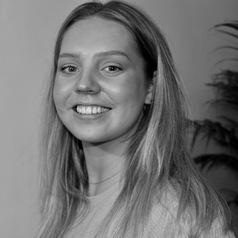
Michaela Kent
PhD Candidate, Neuroscience, Western University
Michaela Kent is a PhD candidate in the Neuroscience Graduate Program at Western University in London, Ontario, Canada. She is based at the Western Institute for Neuroscience and is co-supervised by Dr. Emma Duerden and Dr. Jody Culham.
Her interest in the developing brain has been a driving factor behind previous work. During an undergraduate degree at Glasgow Caledonian University, Michaela wrote a dissertation focussing on the neurodevelopment of children raised in orphanages. She then completed a Master’s degree in Brain Science at the University of Glasgow, working primarily on a functional magnetic resonance imaging (fMRI) study exploring aspects of social cognition. Whilst in Glasgow, Michaela worked with Dr. Ruud Hortensius and as part of the Social Brain in Action Lab on the ERC-funded Social Robots research project. Building on her neuroimaging background, Michaela is now working to use functional near-infrared spectroscopy (fNIRS) to study the developing brain in naturalistic settings. Specifically, she uses fNIRS and behavioural measures to study how socio-cognitive skills develop and how brain responses to social interactions might be influenced by the environment.
Outside of her research, Michaela serves on the Executive Committee for the Society of Neuroscience Graduate Students and as a graduate teaching assistant at Western University.
Less ![]()
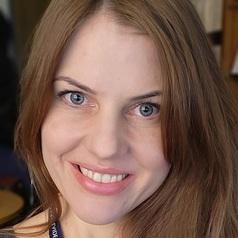
Michaela Estelle Okninski
Lecturer of Law, University of Adelaide
Legal scholar expert in voluntary assisted dying, decision making capacity, medical law and health law
Less ![]()

Michaela Guo Ying Lo
Postdoctoral Researcher in Environment, Conservation, and Development, University of Kent
Less ![]()

Michaela M. McGuire
PhD Candidate, School of Criminology, Simon Fraser University
PhD Candidate with experience in qualitative research, writing, teaching, and public speaking. Diverse work experience including curation, communications, Indigenous governance, education, and curriculum development.
Research interests include decolonization, resurgence, grounded normativity, colonialism/settler colonialism, genocide, belonging, Indigenous corrections, Indigenous justice, Haida tll yahda/making things right/justice, race/racism, corrections, research methods, self-determination, Indigenous rights and governance, and anything Haida Nation/Haida Gwaii related.
Less ![]()
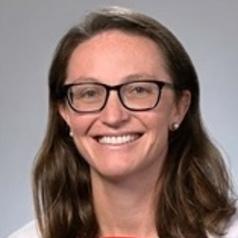
Michaela R. Anderson
Assistant Professor of Medicine, University of Pennsylvania
I specialize in the care of patients with interstitial lung disease and lung transplantation. I am board certified in internal medicine, pulmonary medicine and critical care medicine. I completed my training in internal medicine and pulmonary/critical care medicine at Columbia University. I subsequently pursued additional training in translational and epidemiologic research through an NIH T32 award and completed a Master’s degree in Patient Oriented Research through the Mailman School of Public Health at Columbia University. My current research is focused on evaluating the association between body composition (muscle, fat) and outcomes in interstitial lung disease and lung transplantation, as well as mechanisms linking obesity and lung injury.
Less ![]()

Michal Dziwulski
Researcher, Hate & Extremism Insights Aotearoa, University of Auckland, Waipapa Taumata Rau
Less ![]()
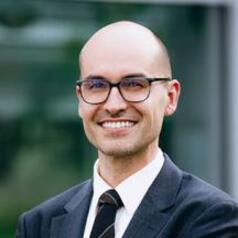
Michal Horný
Assistant Professor of Health Policy and Management, UMass Amherst
As a quantitative health services researcher and a health economist, I study the factors that influence patients’ exposure to the cost of their care and how that impacts their financial outcomes, use of care, and health. The main goal of my research is to improve the affordability of care and health equity. My areas of interest include health insurance benefit design, health care price transparency initiatives, medical billing practices, and health care cost uncertainty. My recent work examines the inequities in the administrative burdens due to medical billing errors, the financial risk that patients bear due to the unpredictability of the service composition of planned health care episodes, and the affordability challenges stemming from the temporal concentration of medical out-of-pocket costs. Most of my research relies on data from large health care claims databases and patient surveys.
Less ![]()
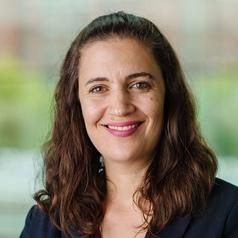
Michal Lehmann
Postdoctoral Fellow in Organizational Behavior and Theory, Carnegie Mellon University
Michal Lehmann, Ph.D., is a post-doctoral researcher at Carnegie Mellon University. She completed her Ph.D. at the Hebrew University Business School, focusing on the intricacies of humility in work teams of two members. Her research delves into the causes, outcomes, and boundary conditions of virtues in the workplace, with a special emphasis on how humility can enhance understanding of people from diverse backgrounds.
Prior to her academic pursuits, Dr. Lehmann worked for a decade as a global training manager in the high-tech industry in Israel.
Less ![]()
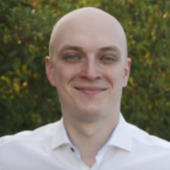
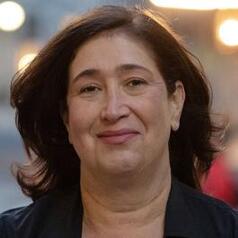
Michal Ben-Josef Hirsch
Associate Professor of Political Science and Legal Studies, Suffolk University
Michal Ben-Josef Hirsch is an Associate Professor in the Political Science & Legal Studies Department, at Suffolk University. Michal holds a B.A. in Political Science from Tel Aviv University and a Ph.D. in Political Science from the Massachusetts Institute of Technology (MIT, 2009). Her research and teaching interests include international relations theory with a focus on the role of international norms and ideas, transitional and historical justice, and the contested narrative of the conflict in Israel / Palestine. She is currently working on a book manuscript (co-authored with Jennifer M. Dixon, Villanova University) about the development trajectory of international norms with a focus on human rights norms since WWII.
Previously, Michal was a Senior Fellow at the Crown Center for Middle East Studies, Brandeis University (2021–2022). She was also an International Security Program Research Fellow at the Belfer Center for Science and International Affairs, Harvard Kennedy School (2007–2009; 2012–2014; 2023-2024) and a Postdoctoral Fellow and Lecturer at the Schusterman Center for Israel Studies, Brandeis University (2009–2012). Michal’s work has been published in European Journal of International Relations, Perspective on Politics, Cooperation and Conflict, Negotiation Journal, and Foreign Affairs.
Less ![]()
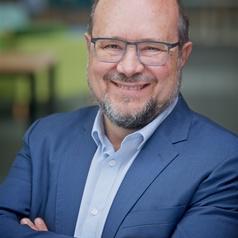
Michalis Christou
Senior Expert on Energy, Materials supply chains, and strategic autonomy, Joint Research Centre
Michalis Christou is a Senior Expert in energy, materials and strategic autonomy at the European Commission’s Joint Research Centre (JRC). He has leading roles in the JRC activities on “Materials and Strategic Supply Chains for the Energy Transition” and "Resilience and Strategic Autonomy in the Energy industry" at the Directorate for Energy, Mobility and Climate. A Mechanical Engineer by training with a PhD in risk analysis, Michalis has more than 25 years’ experience in energy topics, specifically in energy analysis, protection of energy critical infrastructures, security of energy supply, and materials value chains. With his team, he’s performing research on foresight of the demand of materials and components necessary for the energy transition, supply chain analysis, materials and technology innovation, resilience of supply chains and mitigation of supply risk.
Less ![]()
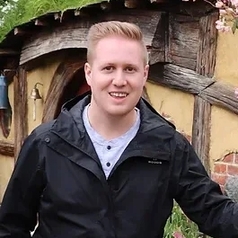
Micheal Heimlick
Social Psychologist , Indigenous Knowledge
Micheal Heimlick is a fourth-generation settler born in Treaty 6 Territory and homeland of the Métis (North Battleford, Saskatchewan, Canada).
During his master’s degree program in Applied Social Psychology, he found a passion for working in the program evaluation field – so much so that he turned it into a full-time career after finishing his degree. Starting in 2017, Micheal has helped lead over 75 short and multi-year program evaluations and has designed evaluation frameworks in both community and academic settings. These evaluations have helped organisations to understand the impact their work is having in communities and has assisted in applying for additional funding to continue the work that they do.
Less ![]()
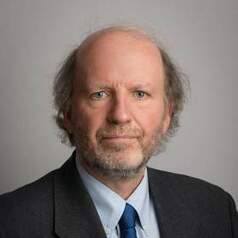
Michel Bruneau
Professor of Engineering, University at Buffalo
Michel Bruneau is a SUNY Distinguished Professor and author of the book "The Blessings of Disaster: The Lessons That Catastrophes Teach Us and Why Our Future Depends on It". He is recognized for the impact of his research contributions to the design and behavior of structures subjected to extreme events, and in particular earthquakes. He is one of the most cited researchers in these fields. He is the lead author of the seminar 2003 paper that formulated the concept and expression of disaster resilience in a manner that has since driven research in this field. He has participated in various expert peer review panels, project advisory committees, and special project design teams. He is a Distinguished Member of the American Society of Civil Engineers, a Fellow of the Canadian Academy of Engineering, and – most significantly – Emeritus Director of a National Science Foundation’s national engineering research center focused on preventing disasters from extreme events. He has worked for more than three decades as part of multidisciplinary teams advancing the goal of disaster resilience and has received more than 20 prestigious awards for this innovative work, including a lifetime achievement award.
Less ![]()

Michel Dugon
Head of the Venom System Lab, University of Galway
I am a zoologist specialised in the evolution and development of venom systems, predation strategies and prey detection in venomous invertebrates.
I am currently investigating a range of related topics including the morphology and development of spider venom glands and the potential of arthropod venom as a novel source of antimicrobial compounds for the pharmaceutical industry.
You can find out more about my work on my lab page: https://www.facebook.com/dugonlab/
Less ![]()
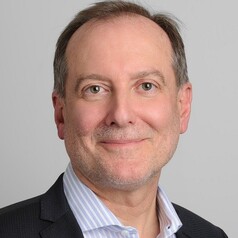
Michel Magnan
Professeur et Titulaire de la Chaire de Gouvernance S.A. Jarislowsky, Concordia University
Membre de la Société royale du Canada
Membre de l'Ordre de l'excellence en éducation du Québec
FCPA auditeur, FCA
Administrateur de sociétés certifié
Expertise en analyse financière, états financiers, gouvernance d'entreprise, responsabilité des entreprises, rémunération
Less ![]()
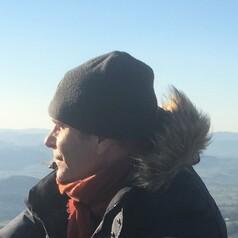
Michel Nicolas
Psychologie, Université de Bourgogne – UBFC
Professeur des universités et psychologue praticien certifié Europsy intervenant auprès d’institutions professionnelles et sportives (interventions, formations et supervisions). Directeur adjoint du Laboratoire de psychologie Psy-DREPI et Directeur de l’Ecole Doctorale SEPT à l’université de Bourgogne Franche-Comté, il est impliqué dans les organisations nationale FFPP et européenne (EFPA). Ses recherches, enseignements et pratiques portent sur l’analyse des processus d’adaptation psychologique. En tant que psychologue praticien certifié Europsy, il intervient auprès d’institutions professionnelles et sportives dans la préparation psychologique des sujets soumis à ces situations contraignantes (interventions, formations et supervisions).
Less ![]()
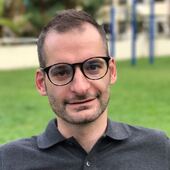
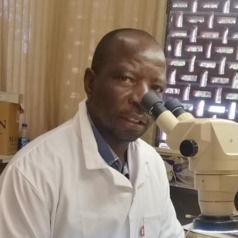
Michel Zondo
Curator of Palaeontology, Natural History Museum of Zimbabwe, Palaeontology student, University of the Witwatersrand
I work as a Curator of Palaeontology at the Natural History Museum of Zimbabwe which is in Bulawayo. I have over 25 years of experience working in the Palaeontology department. Over the years I have gained important skills in prospecting for fossils, fossil collecting, preparation, conservation and curation. I am currently completing my MSc Degree in Palaeontology at Wits University in Johannesburg. I have conducted and have also been part of many successful research expeditions where some very important taxa have been found. I currently have a running project in the Tuli Basin, in the southwestern part of Zimbabwe on which my MSc is based. On this project, several exiting specimens have been discovered.
Less ![]()

Michel-Philippe Robitaille
Doctorant et chargé de cours en sociologie, Université du Québec à Montréal (UQAM)
Je suis doctorant et chargé de cours en sociologie à l’Université du Québec à Montréal. Mes recherches portent sur la sociologie de la mémoire collective. J'étudie le traitement, dans les débats publics, politiques et historiographiques, du passé fasciste en Espagne et en Italie. Mon approche se situe au carrefour de l’histoire intellectuelle et de l’analyse politique.
Less ![]()
- Market Data























